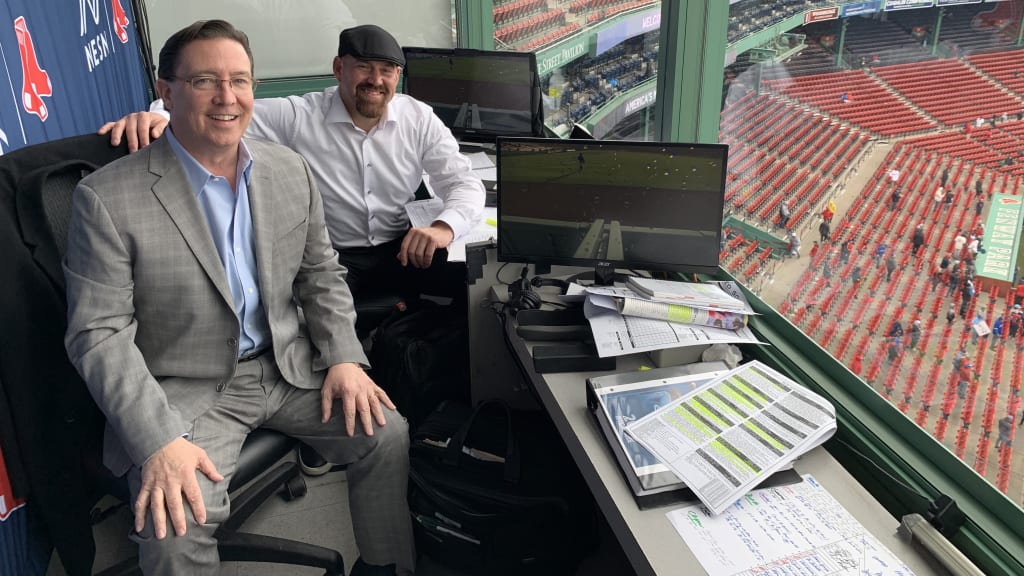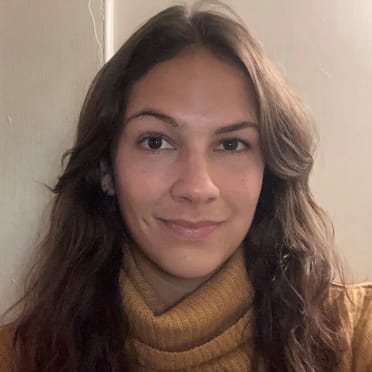
BOSTON -- Kevin Youkilis played 491 games at Fenway Park, but it wasn’t until 2022 that he saw it from this perspective.
Will Middlebrooks used to spend the hours before a Red Sox home game taking batting practice and running infield drills. Now, he grabs a coffee and walks the perimeter of the park looking for the best view.
And Kevin Millar is riding the elevators with thousands of fans postgame.
This season, former Boston players Youkilis, Middlebrooks and Millar took the next step in their post-playing careers, joining the team at NESN.
Youkilis and Millar are working a number of games as analysts in the broadcast booth during games, while Middlebrooks serves as a studio analyst during the pre- and postgame shows. Having all been a part of historic Red Sox seasons -- including the Millar inspired “Cowboy Up” 2003 squad, the curse-busting '04 team and the '13 Boston Strong champions -- all three former players bring a unique and nostalgic presence to the broadcast.
“Every time something good happens here I get pumped up,” Youkilis said. “And I just stay in the moment [with] the energy, because I’m rooting for these guys to win. Because working for the team, that’s what we want. We want these guys to go out every night and have good performances. And then for me it also makes the booth a lot more fun and enjoyable.”
Breaking in
Youkilis announced his retirement on Oct. 30, 2014, putting a bow on a 10-year career which included two World Series rings, three All-Star Game appearances and a Gold Glove Award. In his post-baseball world, the “Greek God of Walks” became the “Greek God of Hops” after he finished his college degree and opened “Loma Brewing Company” in California with his brother in ‘16.
Five years later, Youkilis began his broadcasting career as a weekly contributor on NESN pregame and postgame shows. After the late Red Sox Hall of Famer and longtime broadcaster Jerry Remy was forced to miss games due to a decline in his health, NESN reached out to “Youk” to gauge his interest in filling in as an occasional alternate on the Red Sox broadcast.
Youkilis “just didn’t want to do it,” and declined each time.
It stayed that way until NESN’s Tom Caron came to the former first baseman and said, “Hey, I think you’d be really good at this, I want you to go try it.” After talking to his wife and others in his circle, Youkilis decided to give it a go. He auditioned alongside play-by-play announcer Dave O’Brien, with the tandem calling a recorded game from last season.
After consulting a group chat consisting of accomplished play-by-play announcers Don Orsillo (Padres), Jon Sciambi (Cubs) and Len Kasper (White Sox), and a 20-minute phone call with broadcaster John Smoltz, Youk got the call back and signed on for 50 games this season.
Middlebrooks’ career came to a sudden end after he sustained a number of injuries. After undergoing rehab and countless surgeries, he made the difficult decision to retire. For the next few years, Middlebrooks, who signed with the Red Sox out of high school in 2007, “wanted nothing to do with baseball.”
Now, he had to figure out what was next.
In stepped national sports reporter and former Red Sox sideline reporter Jenny Dell, who is also Middlebrooks’ wife. Much like Youkilis, Middlebrooks was initially hesitant to get into TV. Dell set up a CBS Sports studio appearance for an unknowing Middlebrooks, telling her husband, “You’ll figure it out.”
“And I did. I figured it out,” Middlebrooks said. “I went and I actually hated it the first couple times, because I was like, ‘This is stupid. I should still be playing.’ I still had that mind-set, and after the first couple of weeks, I was like ‘OK, at least I'm decent at it,’ considering I have no experience, but I can talk baseball to a wall if I needed to. And I just stuck with it.
“There's a lot of stuff [about] TV I didn't know. I was a player, I didn't know this [stuff]. I call it the dark side. I crossed over to the dark side.”
Of the three, Millar is the most familiar with the broadcasting side of the game, having served as a co-host on MLB Network’s Intentional Talk since 2011. Working in the booth for a game, though, put Millar “out of his comfort zone,” and he admits he wasn’t very good at it when he worked a handful of games as an analyst in the booth for FOX soon after he retired.
“It was kind of funny. It was kind of an ongoing joke, but like, I didn't know when to stop telling stories,” Millar said. “And I look over at [lead play-by-play broadcaster] Joe Buck, I'm just sitting here rambling on some stupid stories and he’s looking like, ‘No, there's two outs, you can't tell long stories with two outs.’
“I wasn't very good at all. And so [chief executive officer and executive producer] Eric Shanks with FOX is like, ‘Yeah, I don't think you're good at this stuff.’ I go, ‘You know what, Eric, I think you're right.’”
Fast forward a few years and the phone rang again. This time, it was Red Sox chairman Tom Werner, asking the 2004 World Series champion to sign on for a handful of games in 2022.
“I’m like, ‘Tommy, I was fired about three or four games into it. So I'll do the best I can,’” Millar said.
Millar, who lives in Austin, Texas, made the short drive to Arlington for his NESN debut on May 13, when the Red Sox opened a three-game series vs. the Rangers.
“I didn't know how to meet up there, or how long do they sit down before a game,” Millar said. “And Dave O'Brien, he's smooth as the other side of the pillow and makes it really easy.”
The prep
It’s no secret that Boston sports media can be tough. Youkilis, Middlebrooks and Millar can attest to this firsthand. Since joining “the dark side,” they’ve all had the unique opportunity of seeing the game from both perspectives.
When asked about their approach as sportscasters, all three players led with the same sentiment: Baseball is an incredibly difficult sport.
“There's a lot of guys who criticize guys and crush guys and never explain why something happened,” Middlebrooks said. “I will never just crush a guy, because I will tell you firsthand how hard this game is, and it's gotten a lot harder since I got out of the game.”
Middlebrooks uses his roughly two hours pre- and postgame to bridge the gap from the field to the fan. If a player makes a certain throw or takes one step over another, Middlebrooks explains why. During a game, Youkilis walks the line of giving insight without watering the info down or being too technical.
“I think the key for me is just to be human,” Youkilis said. “You’re not trying to be perfect. The fans want you just to be you.”
The learning curve
Milar got his warmup in at Globe Life Field prior to his Sox debut at around 3 o’clock, interviewing Rangers infielder/outfielder Brad Miller for Intentional Talk. After the show ended, Millar stuck around the field to say hello to some familiar faces.
“I'm watching batting practice,” Millar said, “I look up, it's like 5:45 and then I'm like, ‘Oh my god, I gotta go find out where the NESN booth is.’ I've never even been up to the press box. I'm trying to figure all this out.”
Much like Middlebrooks, Millar takes a minimal approach when preparing for a show. They do a bit of research and then let their baseball minds and personality take care of the rest.
“I think in the beginning we all try to be too perfect,” Millar said. “And then once you realize we're not perfect, and we're gonna make mistakes and you don't have to know every single player and every single middle relief player and everything.
“... You got research, you got some nuggets and everybody does their job and you just kind of be who you are. If that's not good enough, I understand that, but I think not being perfect is part of my strengths.”
Though they’re back on the field and close to the action, the former Sox players have adjusted to being spectators and analysts rather than players. These three spent a combined 28 years in the Majors, but this year has given them the unique opportunity to see baseball in a new light.
“I can't wait to come to the park every day. And I missed that feeling,” Middlebrooks said. “Because even toward the end of my playing career, I had tons of injuries, tons of just like tough seasons. And I wasn't falling out of love with baseball, but baseball just wasn't as fun as it always had been, because it was a job. And I don't even view this as a job. … It just fulfills me in a different way. It's something I've been missing for the last few years.”
